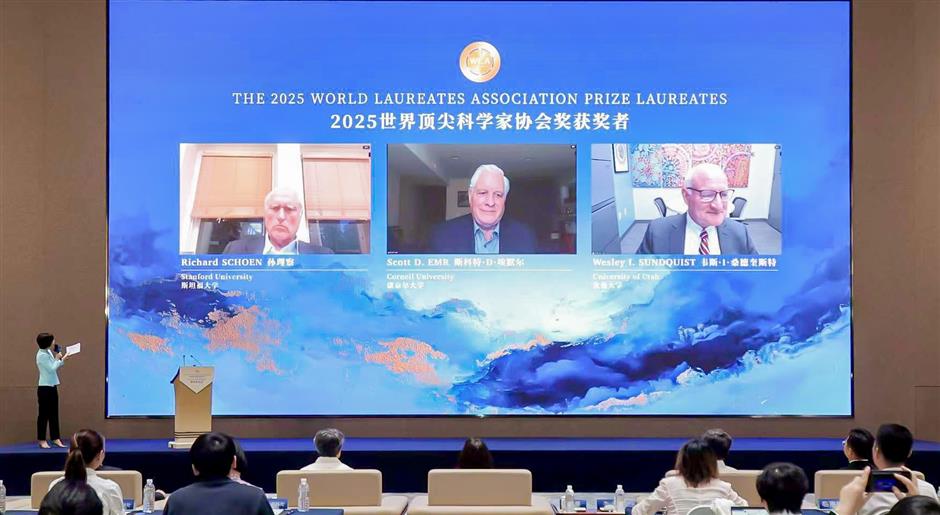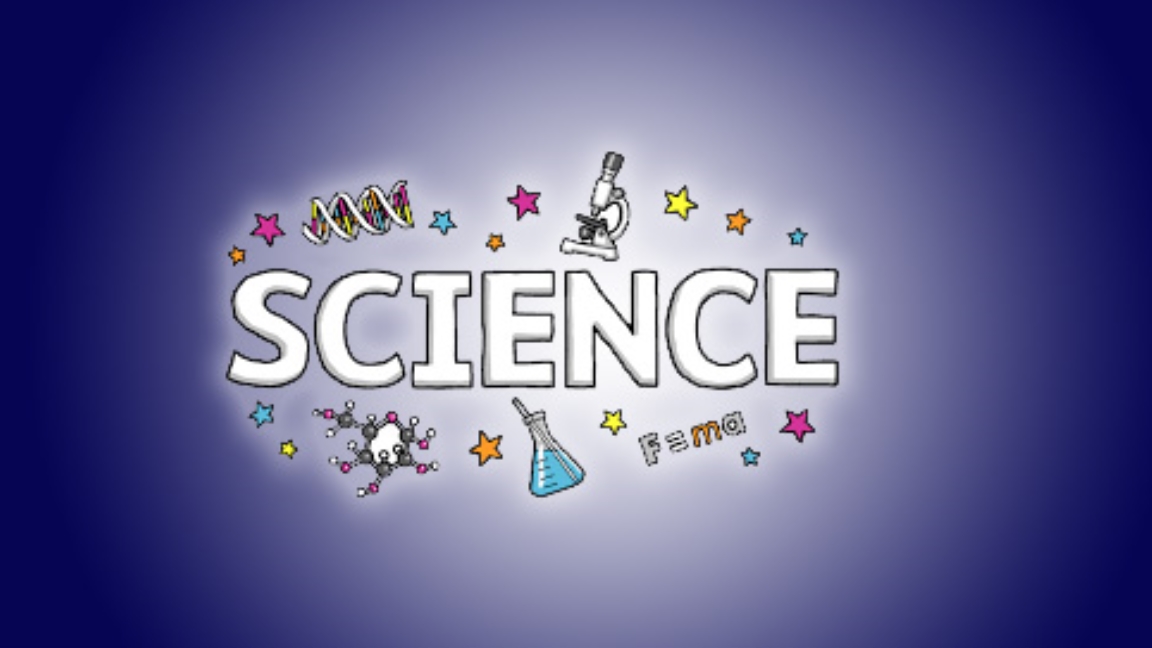

The three laureates attend the press conference via live video.
Three leading American scientists won this year's World Laureates Association Prize (WLA Prize), according to a press conference held in Shanghai's Lingang Special Area.
Molecular biologist Scott D Emr of Cornell University and biochemist Wesley I Sundquist of the University of Utah won the Life Science or Medicine Prize for uncovering how cells transport and degrade membrane proteins – a fundamental mechanism hijacked by viruses such as HIV.
Richard Schoen, Professor Emeritus at Stanford University, received the Computer Science or Mathematics Prize for groundbreaking work in geometric analysis and differential geometry.
Each of the two categories carries 10 million yuan (US$1.4 million) in cash, with the amount shared among multiple laureates, making the WLA Prize among the world's most lucrative scientific awards.
Cracking how HIV assembles, paving way for new therapies
The prize committee hailed Emr and Sundquist for solving a long-standing mystery of how cells capture and dismantle surface receptors, a process viruses exploit to bud from infected cells.
Sundquist said he was honored to receive the WLA Prize, calling it a remarkable recognition of fundamental research and its global impact. He thanked the organizers for supporting basic science and said he looks forward to visiting Shanghai in October to meet fellow scientists and share ideas.
Emr said their work could open unexpected doors in medicine.
"We started with basic yeast genetics to probe how cells downregulate growth-promoting receptors. Surprisingly, we identified a set of genes that are conserved in humans. Defects in some are linked to cancers and neurodegenerative diseases," he said.
"They encode the endosomal sorting complexes required for transport (ESCRT) machinery. When ESCRT goes awry, cells can grow out of control."
Drugs targeting this machinery are now under development, and the mechanism has become a promising target for designing new HIV inhibitors.
From soap films to spacetime: geometry that reshaped physics
Schoen was honored for foundational breakthroughs in geometric analysis, including solving the Positive Mass Conjecture in general relativity and the Yamabe problem on curved spaces.
"Think of dipping a wire frame in soap water. The film that forms spans the frame with the least possible area. We study whether such minimal surfaces always exist, how they bend, and how to visualize them in space," he said.
Schoen added that math's supposed abstraction often drives real-world innovation – from computer graphics and cryptography to artificial intelligence and climate modeling – and that "many topics once seen as purely theoretical have found powerful applications."

Fields medalist and Tsinghua University professor Shing-tung Yau
'Science should be driven by wonder, not medals'
Fields medalist and Tsinghua University professor Shing-tung Yau joined the event virtually, calling the WLA Prize a benchmark that inspires Chinese scientists to compete on the global stage.
But he also urged young researchers to resist chasing fame.
"We research because solving a problem no one has cracked brings real joy," Yau said. "It shouldn't be about collecting titles or medals – curiosity must come first."
Launched in Shanghai in 2021 and permanently funded by HongShan Capital Group, the WLA Prize awards two categories annually – each with a 10-million yuan purse – and has honored 12 scientists to date.
This year's award ceremony will take place on October 24 in Lingang, alongside the opening of the 2025 World Laureates Forum. The fast-growing area is building a "Lingang Science City" to boost research commercialization, foster emerging industries, and attract young global talent.

